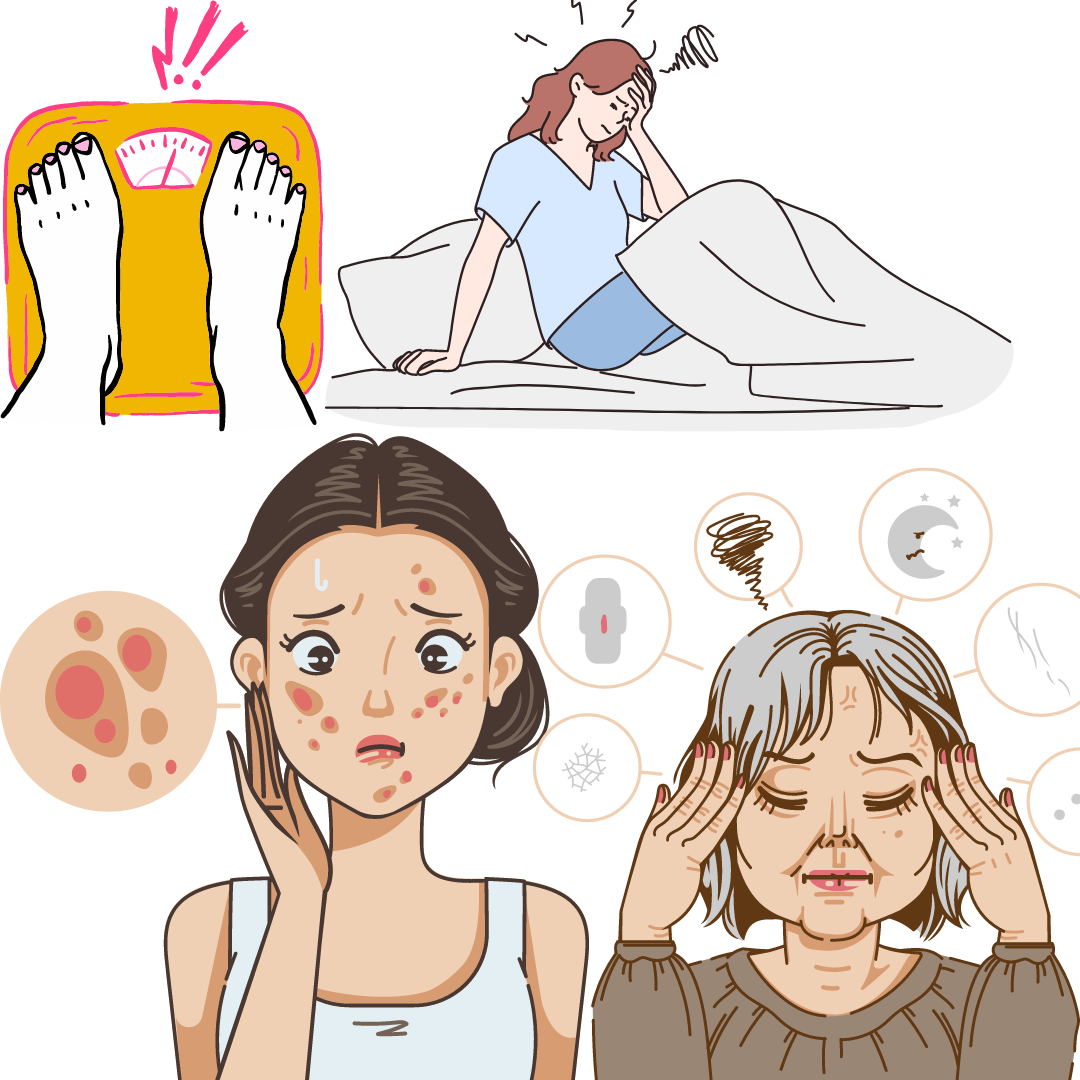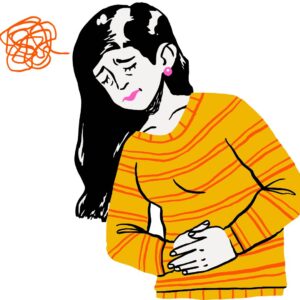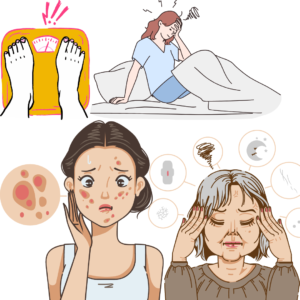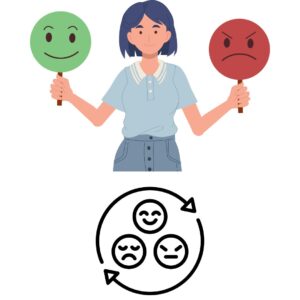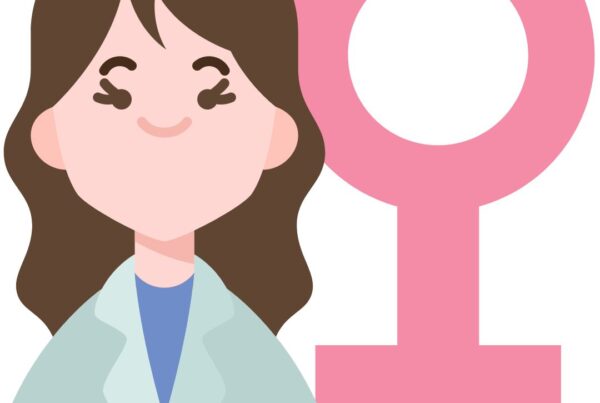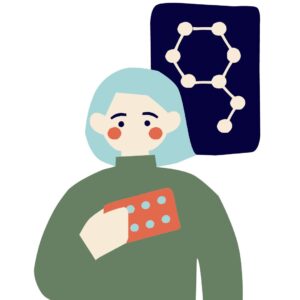
How Do You know You Have Hormonal Imbalance?
Women can experience a wide range of symptoms that might indicate a hormonal imbalance. It’s important to note that these symptoms can also be caused by other factors, so consulting a healthcare professional for diagnosis is crucial. Here are some common signs to be aware of:
Menstrual Cycle Changes:
- Irregular periods: This can include missing periods, having periods more than 35 days apart, or having periods that last longer than 7 days.
- Heavy bleeding or bleeding between periods: This can significantly impact daily activities and quality of life.
- Painful cramps: Severe cramps that interfere with daily activities could be a sign of an imbalance.
- Premenstrual syndrome (PMS) with severe symptoms: PMS symptoms like mood swings, bloating, and breast tenderness are common, but if they are severe and significantly disrupt your life, it could be a hormonal issue.
Other Physical Signs:
- Unexplained weight gain or difficulty losing weight: Hormonal changes can affect metabolism and appetite regulation.
- Changes in skin and hair: Acne breakouts, oily skin, or excessive hair growth can be signs of hormonal imbalance.
- Fatigue and low energy: This can be a constant issue, not just related to your menstrual cycle.
- Trouble sleeping: Difficulty falling asleep, staying asleep, or experiencing restless sleep can be linked to hormonal issues.
- Headaches and migraines: Frequent headaches or worsening migraines could be related to hormonal fluctuations.
- Vaginal dryness and decreased libido: This can affect sexual enjoyment and intimacy.
- Breast tenderness outside of your menstrual cycle: This can be a sign of an imbalance.
Emotional and Mental Health Changes:
- Mood swings, anxiety, or depression: These symptoms can be more severe than typical PMS and significantly impact daily life.
- Difficulty concentrating or brain fog: This can affect memory, focus, and cognitive function.
- Reduced emotional well-being: Feeling overwhelmed, irritable, or down more often than usual could be linked to hormones.
Taking Back Control: A Final Note on Hormonal Harmony
Hormonal imbalance can be a frustrating experience, but it doesn’t have to define your well-being. By recognizing the signs, seeking professional guidance, and potentially implementing some lifestyle changes, you can take back control and restore balance to your body.
Remember, a healthy diet, regular exercise, stress management techniques, and adequate sleep can all play a significant role in regulating hormones. There are also potential natural remedies and hormone replacement therapies (HRT) to discuss with your doctor depending on the specific imbalance.
The journey to hormonal harmony is unique for each woman. Embrace the power of knowledge, prioritize self-care, and don’t hesitate to seek professional help. With the right approach, you can find relief and reclaim a sense of vitality and well-being.


